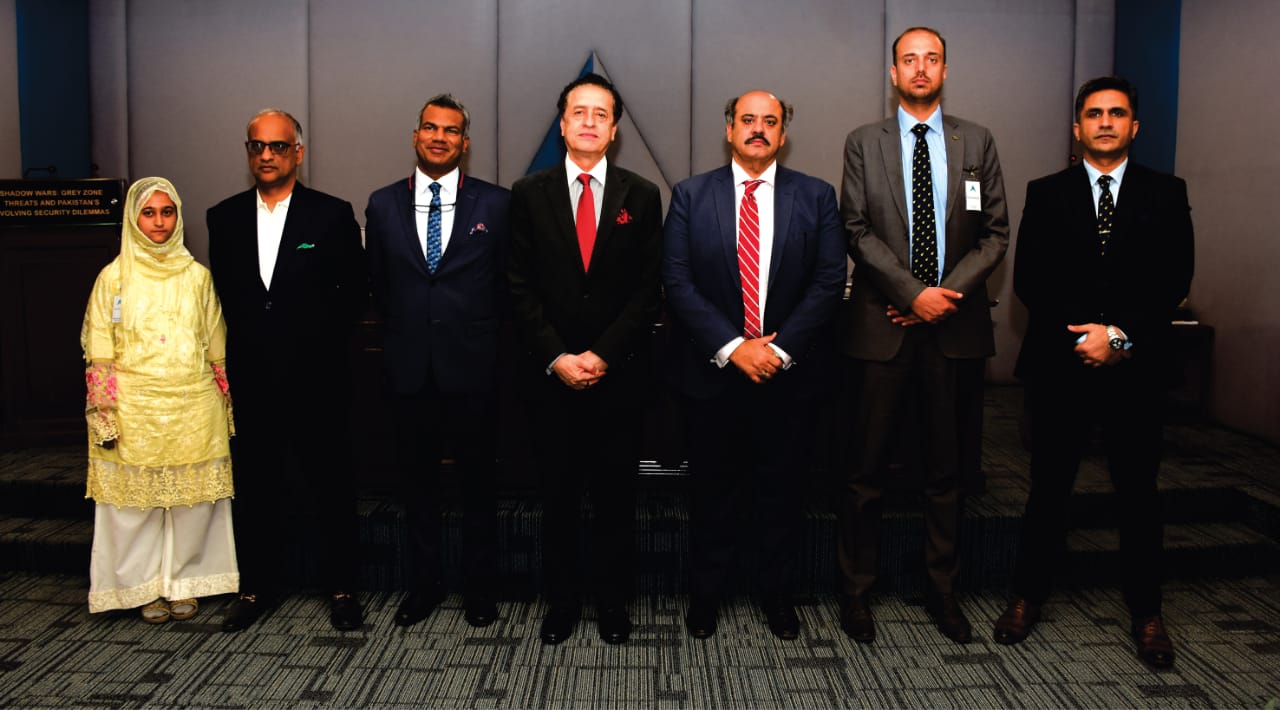ISLAMABAD ( WNAM REPORT):The Centre for Aerospace & Security Studies (CASS), Lahore, hosted a seminar titled “Shadow Wars: Grey Zone Threats and Pakistan’s Evolving Security Dilemmas” . The seminar explored the evolving contours of grey zone warfare and its implications for Pakistan’s national security. Dr Bilal Ghazanfar, delivered the introductory remarks, underscored the urgency of understanding grey zone threats that exploit ambiguity and asymmetry to undermine national security. He highlighted the need for an integrated, anticipatory framework to safeguard Pakistan’s strategic interests across multiple domains.
Dr Zafar Nawaz Jaspal, Dean of Quaid-i-Azam University, Islamabad, delivered a keynote address on “The Evolving Landscape of Grey Zone Warfare: Strategic Challenges for Pakistan and Frontline Technologies”. He noted that the future strategic landscape will increasingly be defined by grey areas that are neither war nor peace. He added that the concept of grey zone warfare has not germinated from a particular event, but rather evolves as a cyclical and cognitive process shaped by the specific environments. Dr Aneel Salman, OGDCL-Economic Security Chair at the Islamabad Policy Research Institute (IPRI), delivered a talk on “Economic Warfare in the Grey Zone”. He argued that 21st-century wars will not be won with missiles, but with markets, as balance sheets increasingly define the battlefield. He observed that economic warfare has gone grey: invisible, deniable, low-cost, and high-impact. Highlighting regional dynamics, he noted that South Asia is a high-friction zone where economic tools are the preferred weapons of influence. Turning to Pakistan’s strategy to counter grey zone tactics, he emphasised that it must be flexible, multi-vector, and well-informed. Syed Muhammad Ali, Chairman of the PEMRA Council of Complaints, Islamabad, delivered a talk on “Cyber and Information Warfare: Securing Digital Frontiers”. He noted that kinetic operations cannot achieve desired objectives without addressing the soft tactical requisites of information warfare. He added that most states are struggling to maintain a monopoly over the narrative and are therefore vulnerable to threats emanating from the information and cyber domains.
In his concluding remarks, Air Marshal Asim Suleiman (Retd), President of CASS Lahore, highlighted the evolving nature of modern warfare, characterised by the employment of grey zone strategies that exploit political, economic, and technological vulnerabilities without provoking overt conflict. He emphasised that in an increasingly complex global security environment, Pakistan must remain vigilant, proactive, and strategically adaptive. He stressed that securing the future in the long term will require economic resilience, effective governance, and progress in technology. The interactive session prompted valuable discussions. The speakers emphasised that policy-making must be accompanied by effective implementation. They underscored the importance of education as a key sector requiring sustained government attention, not only to counter the effects of grey zone threats, but also to foster national social cohesion and enhance Pakistan’s soft image.
The event was widely attended by academia, students, intellectuals and domain experts. CASS is an independent think tank that continues to arrange academic events for academia and practitioners interested in National Security in its wider context.
36


